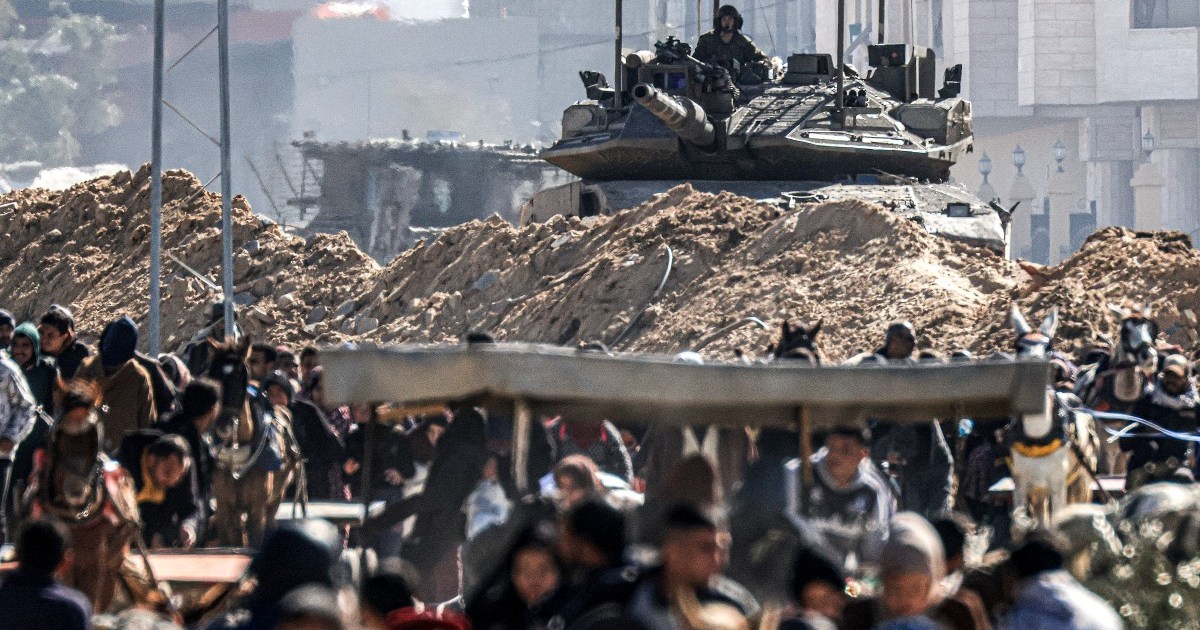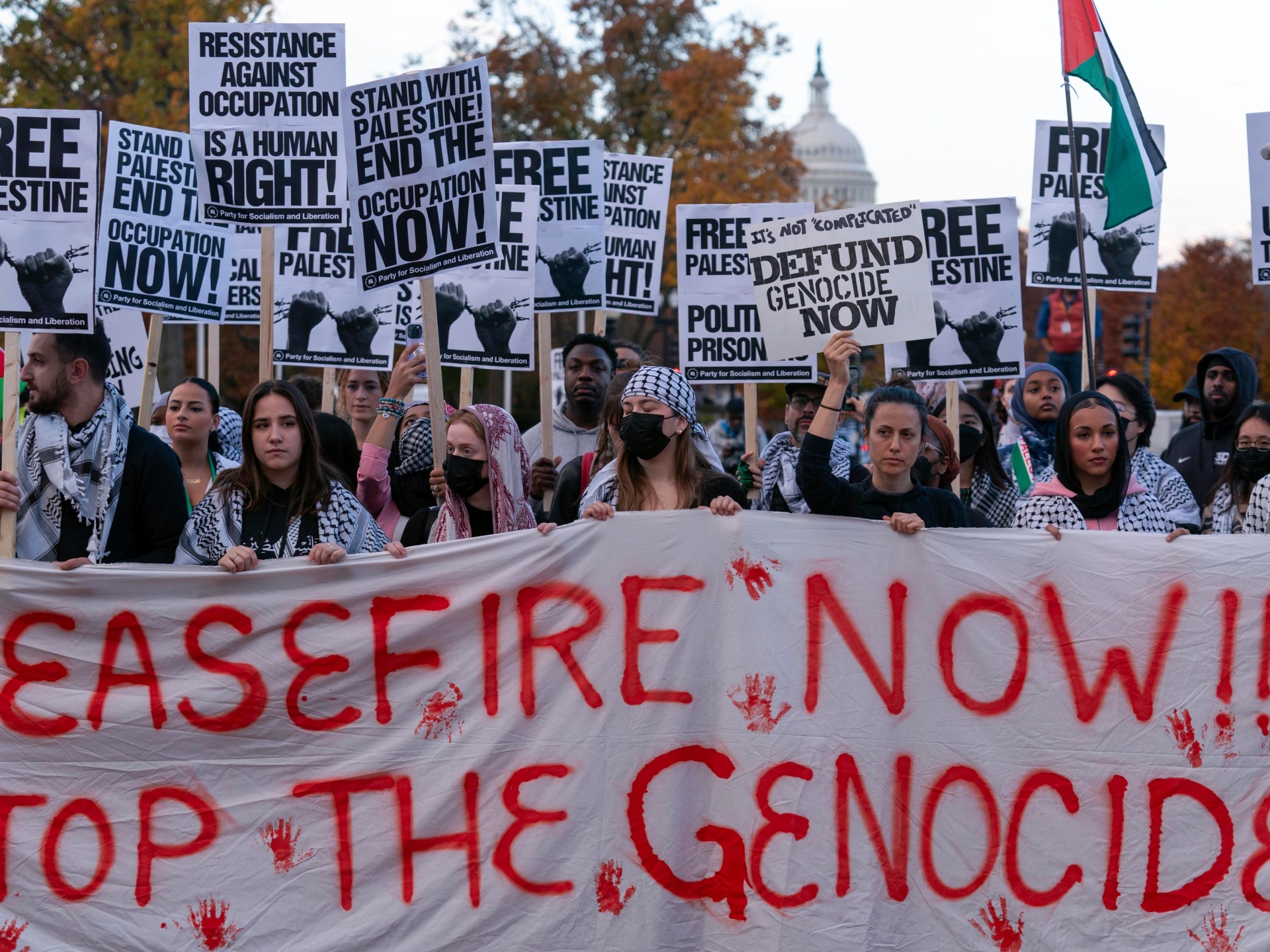
WASHINGTON (AP) — The U.S. military early Saturday struck another Houthi-controlled site in Yemen that it determined posed a threat to commercial vessels in the Red Sea, a day after the U.S. and Britain launched multiple airstrikes against Houthis. Rebels had started.
Associated Press journalists in Sanaa, Yemen’s capital, heard a loud explosion.
US Central Command said the “follow-up operation” was carried out early Saturday local time against a Houthi radar site by the Navy destroyer USS Carney using Tomahawk land-attack missiles.
On the first day of attacks on Friday, 28 locations and more than 60 targets were hit. President Joe Biden warned on Friday that the Iran-backed Houthis could face further attacks.
Biden was asked Saturday as he left the White House to spend the weekend at Camp David about the message that the U.S. strikes against the Houthis sent to Iran: “We delivered it privately and are confident that we are well prepared,” he told reporters.
The latest attack came after the U.S. Navy on Friday warned American-flagged ships to stay away from areas around Yemen in the Red Sea and the Gulf of Aden for the next 72 hours following initial airstrikes. The warning came as Yemen’s Houthis vowed retaliation, further raising the prospect of a wider conflict in a region already reeling from Israel’s war in Gaza.
U.S. military and White House officials said they expected a retaliation from the Houthis.
The US-led bombardment came in response to a recent campaign of drone and missile attacks on merchant ships in the vital Red Sea. At least five people were killed and six injured, the Houthis said. The U.S. said the attacks targeted targets in 28 different locations in Houthi-controlled areas of Yemen in two waves.
“We will ensure we respond to the Houthis if they continue this outrageous behavior alongside our allies,” Biden told reporters on Friday. Biden also pushed back against some lawmakers, both Democrats and Republicans, who said he should have sought congressional approval before carrying out the attacks.
“You are wrong, and I reported exactly what happened this morning when the strikes happened,” Biden said.
The Pentagon said Defense Secretary Lloyd Austin ordered military deployment to the hospital where he is recovering from complications following prostate cancer surgery.
The White House said in November that it was considering redesignating the Houthis as a terrorist organization after they began targeting civilian ships. The government officially delisted the Houthis as a “foreign terrorist organization” and “specially designated global terrorists” in 2021, reversing a move by President Donald Trump
Lt. Gen. Douglas Sims, director of the Joint Chiefs of Staff, said Friday’s U.S. strikes were mostly in sparsely populated areas and the number of people killed was not high. He said the strikes hit weapons, radar and target locations, including in remote mountainous areas.
As the bombardment lit up the skies over several rebel-held locations before dawn, it forced the world to refocus on Yemen’s years-long war that began with the Houthis’ capture of the country’s capital.
Since November, the rebels have repeatedly attacked ships in the Red Sea, allegedly in revenge for Israel’s offensive in the Gaza Strip against Hamas. But they have often targeted ships with weak or no clear ties to Israel, endangering shipping on a key route for global trade and energy supplies.
The Houthis’ military spokesman, Brig. Gen. Yahya Saree, said in a recorded address that the U.S. attacks “will not go unanswered or unpunished.”
Although the Biden administration and its allies have tried for weeks to calm tensions in the Middle East and prevent a wider conflict, the attacks threatened to trigger one.
Saudi Arabia, which supports the government-in-exile fighting the Houthis, sought to distance itself from the attacks as it seeks to maintain a delicate détente with Iran and a ceasefire in Yemen. The Saudi-led, U.S.-backed war in Yemen has killed more than 150,000 people, including fighters and civilians, and caused one of the world’s worst humanitarian disasters, killing tens of thousands more.
It remained unclear how extensive the damage was from Friday’s attacks, although the Houthis said at least five sites, including airfields, were targeted.
U.S. Air Force Central Command said the attacks focused on Houthi command and control nodes, ammunition depots, launch systems, production facilities and air defense radar systems. The attacks involved more than 150 precision-guided munitions and Tomahawk missiles.
The United Kingdom said the strikes hit a site in Bani that was allegedly used by the Houthis to launch drones, and an airfield in Abbs that was used to launch cruise missiles and drones.
In another development, Iran released footage of the seizure of an oil tanker in the Gulf of Oman that was once at the center of a dispute between Tehran and Washington.
In the footage, a helicopter hovers over the deck of the St. Nikolas. The Iranian navy seized the ship on Thursday. The ship was formerly known as Suez Rajan. The U.S. seized 1 million barrels of sanctioned Iranian oil from the ship last year.
In Yemen, Hussein al-Ezzi, a Houthi official in their foreign ministry, said: “America and Britain must undoubtedly prepare to pay a heavy price and bear all the terrible consequences of this blatant aggression.”
The Red Sea route is a vital waterway and attacks there have caused severe disruption to global trade. Benchmark Brent crude traded down around 4% to over $80 a barrel on Friday. Tesla, meanwhile, announced that it would temporarily halt much production at its German factory due to the attacks in the Red Sea.
In Saada, the Houthi stronghold in northwest Yemen, hundreds gathered on Friday for a rally denouncing the United States and Israel. Another drew thousands to the capital, Sanaa.
The Houthis now control an area in which around two thirds of Yemen’s 34 million inhabitants live. War and mismanagement have made Yemen one of the Arab world’s poorest countries, and the World Food Program estimates that the vast majority of Yemen’s population is food insecure.
Yemen has been the target of US military action during the last four US presidencies. A drone strike campaign against the local al-Qaeda affiliate began under President George W. Bush and continued under the Biden administration. Meanwhile, the US has launched raids and other military operations amid the war in Yemen.
This war began when the Houthis invaded Sanaa in 2014. A Saudi-led coalition that included the United Arab Emirates launched a war in support of Yemen’s government-in-exile in 2015, quickly turning the conflict into a regional confrontation as Iran backed the Houthis with weapons and other support.
However, the conflict has slowed as the Houthis remain in control of the territory they hold. In March, Saudi Arabia, brokered by China, agreed to resume relations with Iran in the hope of eventually withdrawing from the war.
Iran condemned Friday’s attack in a statement by Foreign Ministry spokesman Nasser Kanaani. “Indiscriminate attacks will have no result other than stoking insecurity and instability in the region,” he said.
At an emergency UN Security Council meeting late Friday, Russian Ambassador Vasily Nebenzia accused the US, Britain and their allies of “blatant armed aggression” against Yemen and warned: “If the escalation continues, the entire Middle East could fall into catastrophe .”
US Ambassador Linda Thomas-Greenfield and British Ambassador Barbara Woodward emphasized that the attacks were in self-defense. “So there needs to be de-escalation,” Thomas-Greenfield said. “It has to be done by the Houthis, who are endangering all our shipping companies.”
___
Gambrell reported from Dubai, United Arab Emirates. Associated Press writers Ahmed Al-Haj in Sanaa, Yemen; Bassem Mroue in Beirut, Jill Lawless in London, Nasser Karimi in Tehran; Fatima Hussein, Ellen Knickmeyer and Chris Megerian in Washington; Seung Min Kim in Emmaus, Pennsylvania; and Edith M. Lederer from the United Nations contributed to this report.






Recent Comments